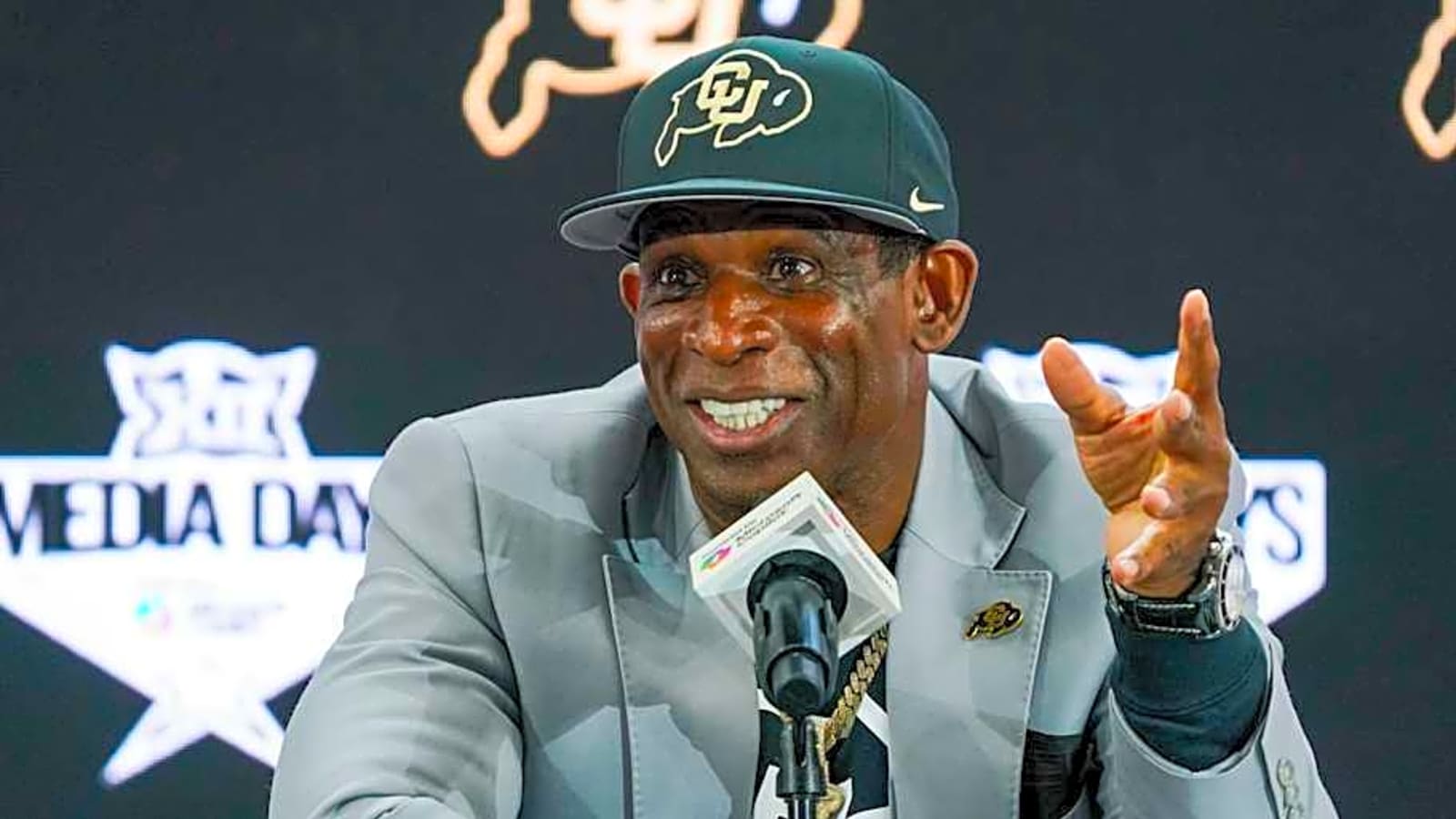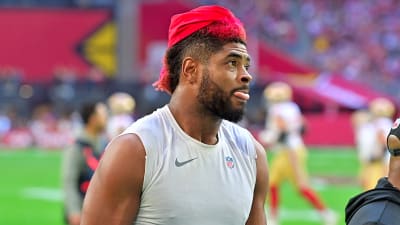
FRISCO, Texas — It's probably more likely than anyone would admit, but Arkansas coach Sam Pittman just might be in complete agreement with Deion.
Colorado coach Deion Sanders said Wednesday that college football needs a salary cap to restore competitive balance, warning that unchecked spending and NIL deals are making the sport harder to manage.
Speaking at Big 12 media days, Sanders said the current system, which allows for unregulated player movement and rising salaries through name, image and likeness deals, has left some programs unable to compete for top talent.
“I wish there was a cap,” Sanders said during a coaches’ roundtable. “Like, the top-of-the-line player makes this, and if you’re not that type of guy, you know you’re not going to make that. That’s what the NFL does.
“So the problem is, you got a guy that’s not that darn good, but he could go to another school and they give him a half million dollars. You can’t compete with that. And it don’t make sense.”
"All you gotta do is look at the [CFP] and see what those teams spent, and you'll understand darn well why they're in the playoffs."
— ESPN (@espn) July 9, 2025
Deion Sanders on NIL and the current state of college football. pic.twitter.com/y6A5C3dWUP
Pittman will get his chance to respond at SEC Media Days on Thursday. It's probably a safe bet that will be one of the biggest questions for every coach.
Having written and talked about Sanders for 35 years since he was in high school, I have agreed with him on a lot. It's not hard to ignore all of the circus if you just try it.
He makes sense more than some would think. The NCAA and power conferences recently approved a revenue-sharing agreement, known as the House settlement, that allows schools to share up to $20.5 million per year with athletes.
That cap is expected to rise to about $32 million over the next decade. That probably wouldn't be enough because schools have pretty much shown they will find a way to spend it.
Sanders said the changes are not enough to level the playing field.
“You understand darn near why they’re in the playoffs,” Sanders said, referring to the College Football Playoff. “It’s kind of hard to compete with somebody who’s giving $25-30 million to a freshman class. It’s crazy.”
Top programs, often with more resources and donor support, are able to offer larger NIL deals to recruits and transfer players. A lot of folks didn't seem to think of that on the latest settlement that hasn't landed in court yet.
Some coaches estimate schools must spend close to $20 million annually on football rosters to keep up with the nation’s elite teams.
“Nobody knows where it’s gonna land or where it’s going,” Sanders said. “There’s gotta be a salary cap on this stuff because this stuff is going crazy.”
Should there be a salary cap in college football? Deion Sanders suggested such at Big 12 Media Day? We dive in on College Football Live with @harrylylesjr and @TomLuginbill. pic.twitter.com/I0v5YQo6lL
— Pete Thamel (@PeteThamel) July 10, 2025
Legal experts and athletics directors have raised concerns that imposing a strict cap on athlete pay could lead to antitrust challenges. The House settlement itself was a response to lawsuits over compensation restrictions and limits could trigger more litigation.
For Sanders, the lack of transparency and standards is as damaging as the money itself.
“I wish it was truly equality,” Sanders said. “Now they go back to doing stuff under the table. They go back to the agents. Now you’ve got parents trying to be agents, you’ve got the homeboys trying to be agents, you’ve got the friends trying to be agents.
“You got a lot of bull junk (no, that's not edited) going on, and quite frankly, we’re sick of it. I’ll say it for everybody we’re sick of it.”
Under the new revenue-sharing rules, schools can distribute up to $20.5 million per year to athletes in all sports. The cap will rise by about 4% annually, but NIL deals negotiated independently with boosters and sponsors are not included in the official cap.
This has created a system with both direct school payments and outside compensation. Don't talk about the "market value" approval because what someone will pay determines that number, not some objective opinion of an accountant.
Some athletic directors have likened the new landscape to NFL free agency, but without the regulations imposed by professional leagues.
“We’re developing players for three years, and then someone else comes in and offers them more money to transfer,” one Power Five athletics director said. “You can’t build a team that way.”
Sanders, who is set to earn $10 million this year and is among the sport’s highest-paid coaches, said he will continue to advocate for a system that supports all athletes and programs.
Don't think Pittman is the only coach who agrees with him, either. The number is probably much larger than most would even think.
But Sanders said it in a very public forum. Maybe the right people are listening.
Hogs Feed:
More must-reads:
- Texas HC Steve Sarkisian discusses Arch Manning's potential NFL Draft decision
- Johnny Manziel shares how NIL would have changed his career
- The 'No. 1 overall MLB Draft picks' quiz
Breaking News
Trending News
Customize Your Newsletter
 +
+
Get the latest news and rumors, customized to your favorite sports and teams. Emailed daily. Always free!








